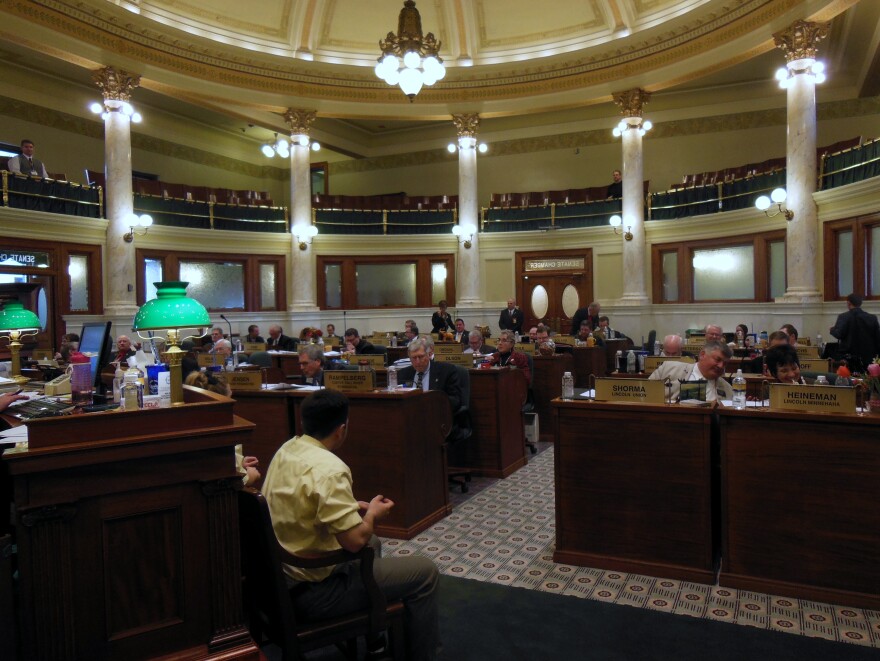A state Senate panel is endorsing education plans that focus on supporting Native American students. One of those measures funds programs that focus on incorporating Indian culture and language into standard subjects.
Senate Bill 82 establishes a grant program to support three Native American Achievement Schools. These are public schools that already exist, and they must meet certain criteria – including a student population that’s at least half Indian. The measure establishes additional priorities to select the schools and designates state dollars to tailor education to Native culture.
Mato Standing High is Indian Education Director for South Dakota. He says programs have two years of preparation before implementation.
“The schools are still under the guise of public school system. They’ll still have to learn math. They’ll still have to learn the science. They’ll still have to learn the reading and English, but there will be more of a focus on Lakota, Nakota, and Dakota language depending on where you are in the state to infuse in and also aspects of culture that the schools would be looked to to provide,” Standing High says.
Standing High says the bill aims to focus education on the whole Native American child. He says some Indian students go to school under overwhelming circumstances.
“If I’m in a home and I see whatever it may be – violence or something along those lines, how do I go to school the next day and learn if I’m six years old? Do I have a ride to school? There’s issues that really affect our children that they have no control over, so we have to make sure that they’re ready to learn,” Standing High says. “It’s not just, ‘Sit in your seat. Put your nose in the book. Take this test.’ It’s, ‘Are you cold? Are you hungry? Can we do anything for you?’”
Members of the Senate Education committee support establishing Native American Achievement Schools and providing grant money for three years. Senate Bill 82 goes to the full state Senate and its funding bill moves to the Appropriations committee with unanimous support.
The panel also approved Senate Bill 81, which provides para-professionals in Indian schools help gaining or completing education degrees.
State Senator Troy Heinert from Mission says applicants are often tribal members who know local children and families well.
"Many of them would like to become teachers, and we know that they’re staying," Heiner says. "They’re already in our program. They’re already working in our schools. They already have housing and some of the other issues that stop teachers from coming."
Heinert says children need consistency in education, and tribal schools have high teacher turnover rates as people start careers on the reservation and leave soon after.
State Education Secretary Melody Schopp says one-time money supports at least 10 people who want to gain education degrees. She says the number seems small but leaders want to make sure people who are working full time and often have family lives get enough support to be successful.
Lawmakers on the Senate Education committee amended the measure to end funding after three years. Supporters say at that point they can prove whether the program works and can ask for ongoing money. As amended, Senate Bill 81’s next hearing happens on the Senate floor.


